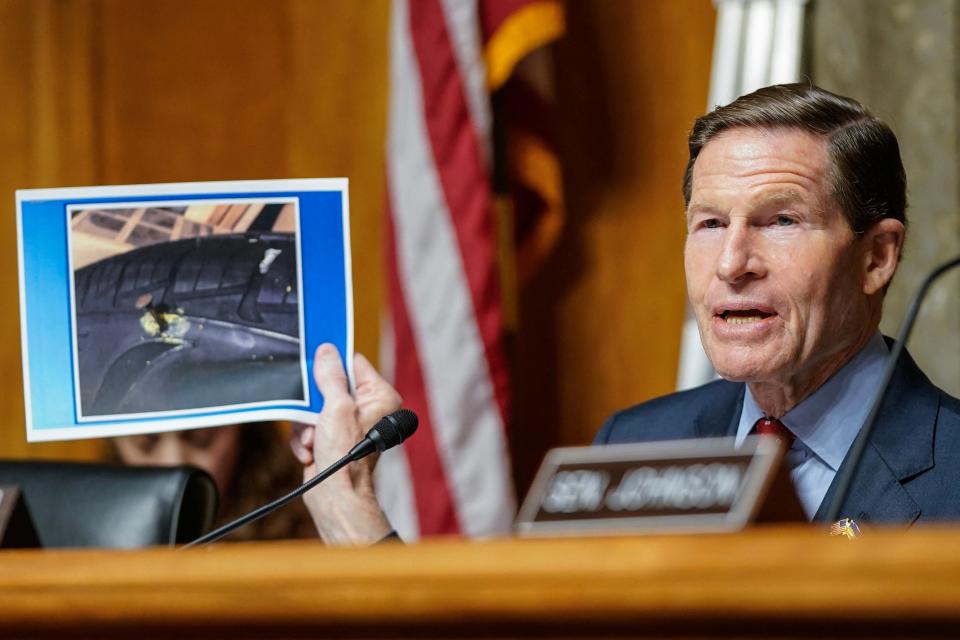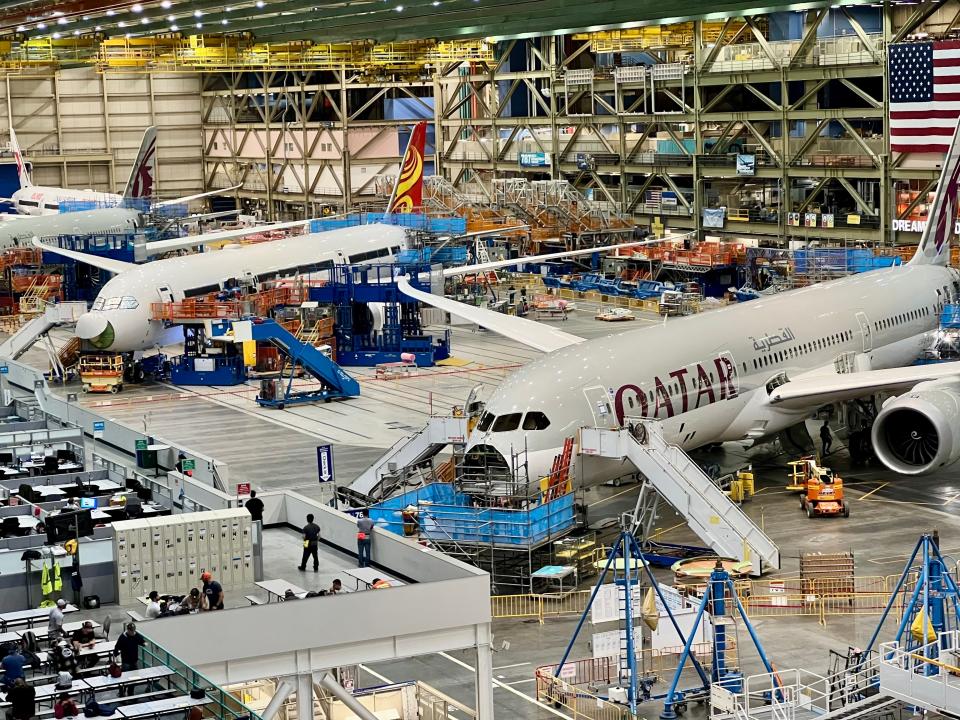Boeing whistleblower said the company threatened him and other engineers to keep quiet about safety concerns

A Boeing engineer told lawmakers the company threatened him for voicing safety concerns.
He said his manager would keep him out of meetings and call his personal phone to "berate" him.
The comments surfaced at a hearing to address the safety culture at the once-revered planemaker.
A veteran Boeing engineer told a panel of lawmakers that he received verbal and physical threats for voicing safety concerns to the company.
In a Senate hearing on Wednesday, Sam Salehpour, a veteran Boeing employee turned whistleblower, said the company repeatedly ignored his reports of safety lapses during the production of at least 1,400 widebody airplanes.
Salehpour said a Boeing quality manager told him not to document concerns or notify experts of the gaps he said exist on the fuselage of hundreds of Boeing 787 Dreamliners. Salehpour said the boss insinuated that he should instead keep quiet.
Boeing has denied any safety lapses in its 787 planes, telling Business Insider on Wednesday that "a 787 can safely operate for at least 30 years before needing expanded airframe maintenance routines."
Salehpour also said his boss retaliated against him by keeping him out of meetings, silencing him, transferring his department, making him cancel doctor appointments, and calling his personal phone to "berate" him.
"It reminds me of, ya know, people who stalk people," Salehpour said at the hearing, noting he has a work phone his manager could call him on. "They call you on your personal phone to let you know that they know where you live, they know where you are, and they can hurt you."
Salehpour — who said he still has his job thanks to whistleblower-protection laws — told lawmakers that has has also received threats against his physical safety.
A photo of a nail in Salehpour's car tire was shown at the Wednesday hearing, which he said a mechanic told him was intentionally put there and not something the tire picked up on the road. He told lawmakers that although he has "no proof" of where or who the nail came from, he believes it happened at work.

In another instance, Salehpour told lawmakers that his boss once said in a meeting that he "would have killed someone who said what you said."
Salehpour said this retaliation is part of a greater trend at Boeing, where engineers are threatened into overlooking quality concerns due to a culture that puts "schedule over safety" and punishes employees for speaking up.
One case Salehpour told lawmakers involved his colleague inspecting 787 fuselage gaps that could have debris, and the boss suggested he should not stop production over the concern.
"The attitude at Boeing from the highest level is just to push the defective parts regardless of what it is, unfortunately," he said.
Boeing told BI that it encourages transparency with its employees and that reports have skyrocketed since the Alaska Airlines 737 Max blowout in January.
"There has been a more than 500% increase in employee reports through our "Speak Up" portal compared to 2023, which signals progress toward a robust reporting culture that is not fearful of retaliation," the company said.
Boeing backs its widebodies
Wednesday's hearing came a week after Salehpour's whistleblower complaint to aviation regulators became public.
Salehpour, who has worked on both the 777 and 787 assembly lines, said he witnessed misaligned parts that could more quickly fatigue over time and potentially lead to a catastrophic event.

"After the threats and after all this, it really scares me, but I am at peace," Salehpour said. "If something happens to me, I am at peace because I feel like by coming forward, I will be saving a lot of lives."
Boeing has backed its widebody planes despite Salehpour's complaint, telling BI in an email statement prior to the hearing that the allegations are not representative of the work it has done to "ensure the quality and long-term safety of the aircraft."
"Extensive and rigorous testing of the fuselage and heavy maintenance checks of nearly 700 in-service airplanes to date have found zero evidence of airframe fatigue," Boeing told BI, referring to its 787 Dreamliners.
"Under FAA oversight, we have painstakingly inspected and reworked airplanes and improved production quality to meet exacting standards that are measured in the one-hundredths of an inch," it continued.
Read the original article on Business Insider

